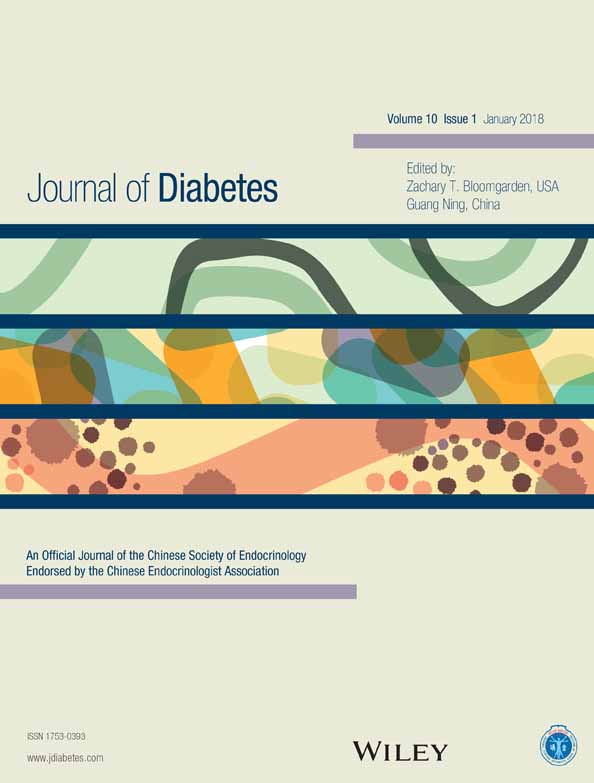Effect of AMP-activated protein kinase subunit alpha 2 (PRKAA2) genetic polymorphisms on susceptibility to type 2 diabetes mellitus and diabetic nephropathy in a Chinese population
PRKAA2基因多态性对中国人群易感2型糖尿病和糖尿病肾病的影响研究
Abstract
enBackground
It is well known that AMP-activated protein kinase (AMPK) is a key factor affecting the development of type 2 diabetes mellitus (T2DM). The single nucleotide polymorphism (SNP) rs2746342 in the AMPK alpha 2 subunit gene (PRKAA2) has been found to be associated with susceptibility to T2DM in the Chinese Han population. The present study further investigates the association of PRKAA2 genotypes with susceptibility to T2DM and its complication, diabetic nephropathy.
Methods
The PRKAA2 genotypes of 406 T2DM patients and 214 controls from the Chinese Han population were determined with regard to SNPs rs10789038, rs2796498 and rs2746342. The association between these SNPs and susceptibility to T2DM and diabetic nephropathy was evaluated. The clinical characteristics differed significantly between T2DM patients and controls.
Results
After adjustment for age, sex and body mass index, there was an obvious relationship between T2DM and both rs10789038 (odds ratio [OR] 1.634; P = 0.015) and rs2796498 (OR 0.656; P = 0.030), but not rs2746342. There was haplotype association of PRKAA2 rs10789038–rs2796498–rs2746342 with T2DM susceptibility. In addition, rs2796498 was found to be related to the susceptibility to diabetic nephropathy.
Conclusions
Polymorphisms in rs10789038 and rs2796498 are associated with the susceptibility to T2DM, and rs2796498 may be related to diabetic nephropathy.
摘要
zh背景
众所周知, AMPK是影响2型糖尿病发生发展的关键基因。有报道称AMPK亚基a2基因(AMPK alpha 2 subunit gene,PRKAA2)rs2746342与中国汉族人群2型糖尿病的易感性相关。本研究旨在进一步探究PRKAA2的基因多态性与2型糖尿病及其并发症糖尿病肾病易感性之间的关联。
方法
我们对来自中国汉族的406个2型糖尿病患者和214个正常健康对照PRKAA2 基因的rs10789038、rs2796498和rs2746342三个多态性位点进行了检测, 并分析了这些SNP与2型糖尿病以及糖尿病肾病易感性的相关性。2型糖尿病患者组和健康对照组的临床特征存在显著差异。
结果
在校正了年龄, 性别和体重指数之后, 2型糖尿病的易感性与rs10789038(OR = 1.634, P = 0.015)和rs2796498(OR = 0.656, P=0.030)两个位点存在显著相关性, 而与rs2746342的基因多态性没有明显关联。同时, PRKAA2 rs10789038-rs2796498-rs2746342的单倍型也与2型糖尿病的易感性相关。除此之外, rs2796498的基因多态性和糖尿病肾病的易感性相关。
结论
PRKAA2基因的rs10789038和rs2796498的基因多态性与2型糖尿病的易感性相关, 同时rs2706498基因多态性可能和糖尿病肾病的易感性相关。




